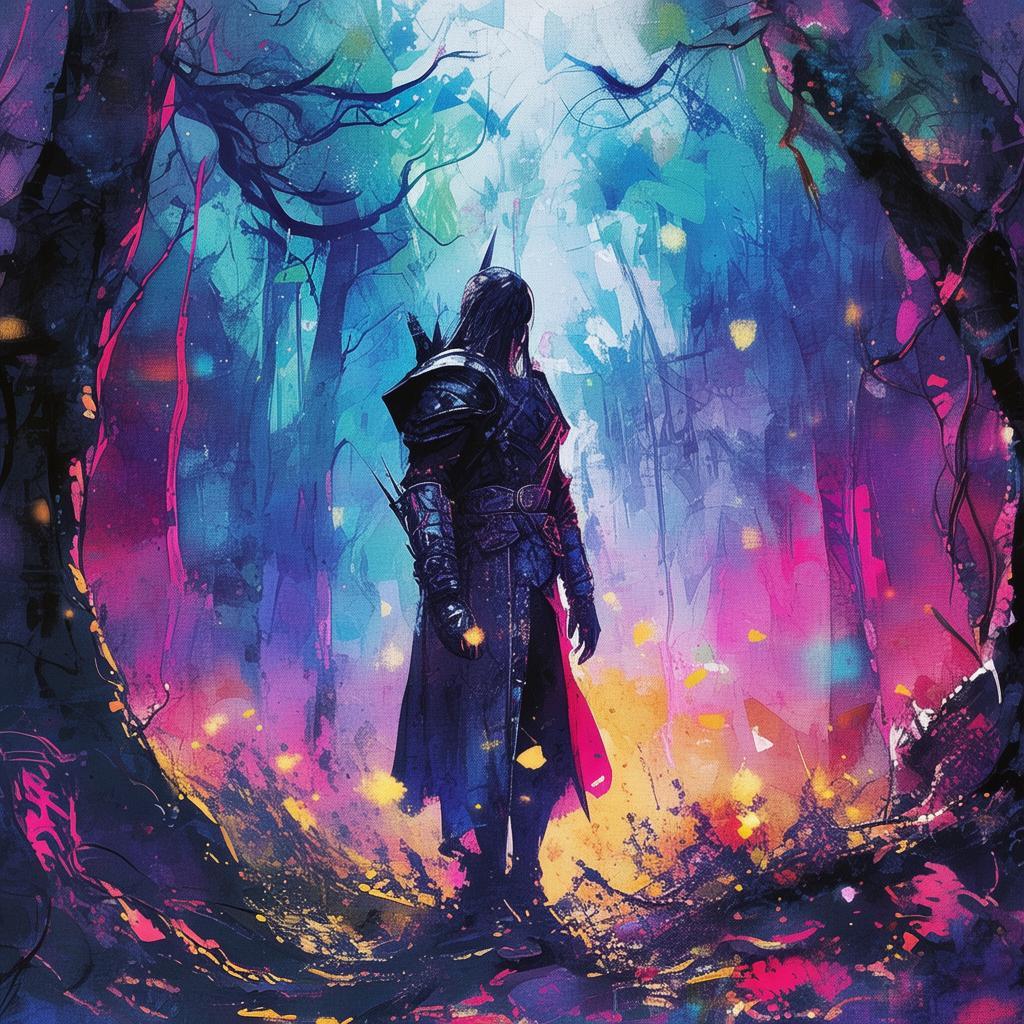The Labyrinth of the Sage's Spring
In the verdant valley of Eudaimonia, nestled between the whispering pines and the murmuring rivers, there lay a spring whose waters were said to possess the power to illuminate the deepest recesses of the soul. This was the legendary Sage's Spring, a place where the quest for wisdom was not merely an intellectual pursuit but a profound journey into the self.
Amidst the verdant underbrush, young Theodorus, a philosopher with a thirst for knowledge, stumbled upon the entrance to an ancient labyrinth. Its walls were inscribed with cryptic symbols and tales of sages who had once sought the spring's mysteries. Theodorus, driven by an insatiable curiosity, pushed open the creaking gate and stepped into the labyrinth.
The labyrinth was a maze of winding paths, each one leading to a different chamber, each chamber housing a riddle or a challenge. Theodorus moved with deliberate purpose, his eyes scanning the walls for clues. The first chamber presented him with a paradox: "To seek wisdom, you must first forget what you know." Theodorus paused, pondering the meaning. He realized that the quest for wisdom was not about accumulating knowledge but about understanding the nature of ignorance itself.
In the next chamber, a voice echoed through the stone walls, "The path to wisdom is not linear, but circular." Theodorus realized that the journey was not a straight line from ignorance to enlightenment but a continuous cycle of learning and unlearning.

As he ventured deeper, the labyrinth began to transform. The walls seemed to shimmer, and the air grew thick with the scent of blooming flowers. Theodorus found himself in a chamber where the floor was a pool of water, and within it, he saw his own reflection. The Sage's voice spoke, "The truest reflection is not in water, but in the eyes of another."
Theodorus understood that wisdom was not just about self-reflection but about understanding the world through the eyes of others. He moved on, encountering more challenges, each one a mirror to his own beliefs and biases.
One chamber contained a large, ornate mirror. The Sage's voice resonated, "Look into the mirror and see yourself, not as you wish to be, but as you truly are." Theodorus looked, and he saw not just his reflection, but the reflection of all his doubts and fears.
As he continued his journey, the labyrinth seemed to become less about external challenges and more about internal ones. Theodorus found himself facing his own biases, his own preconceptions, and his own ego. He realized that the quest for wisdom was a quest for humility.
Finally, Theodorus arrived at the heart of the labyrinth, where the Sage's Spring bubbled up from the earth. The water was clear and cool, and it seemed to emanate a sense of peace and clarity. The Sage appeared before him, an ancient figure with eyes that held the wisdom of ages.
"The Spring of the Philosophical Quest," the Sage intoned, "is not just a place but a state of being. It is where the quest for knowledge meets the quest for self-awareness. You have walked the path, and now you must return to the world, not as a seeker of wisdom, but as a bringer of understanding."
Theodorus drank from the spring, feeling a surge of clarity and insight. He knew that his journey was far from over, but he also knew that he had found the beginning of a new path.
He left the labyrinth, the world outside looking different than before. Theodorus had found the spring not just in a place, but within himself. The quest for wisdom was a journey that would continue, but now, he was ready to face it with a newfound perspective.
The Labyrinth of the Sage's Spring was a tale of the profound journey of self-discovery, where the quest for wisdom became a quest for the truth within.
✨ Original Statement ✨
All articles published on this website (including but not limited to text, images, videos, and other content) are original or authorized for reposting and are protected by relevant laws. Without the explicit written permission of this website, no individual or organization may copy, modify, repost, or use the content for commercial purposes.
If you need to quote or cooperate, please contact this site for authorization. We reserve the right to pursue legal responsibility for any unauthorized use.
Hereby declared.









